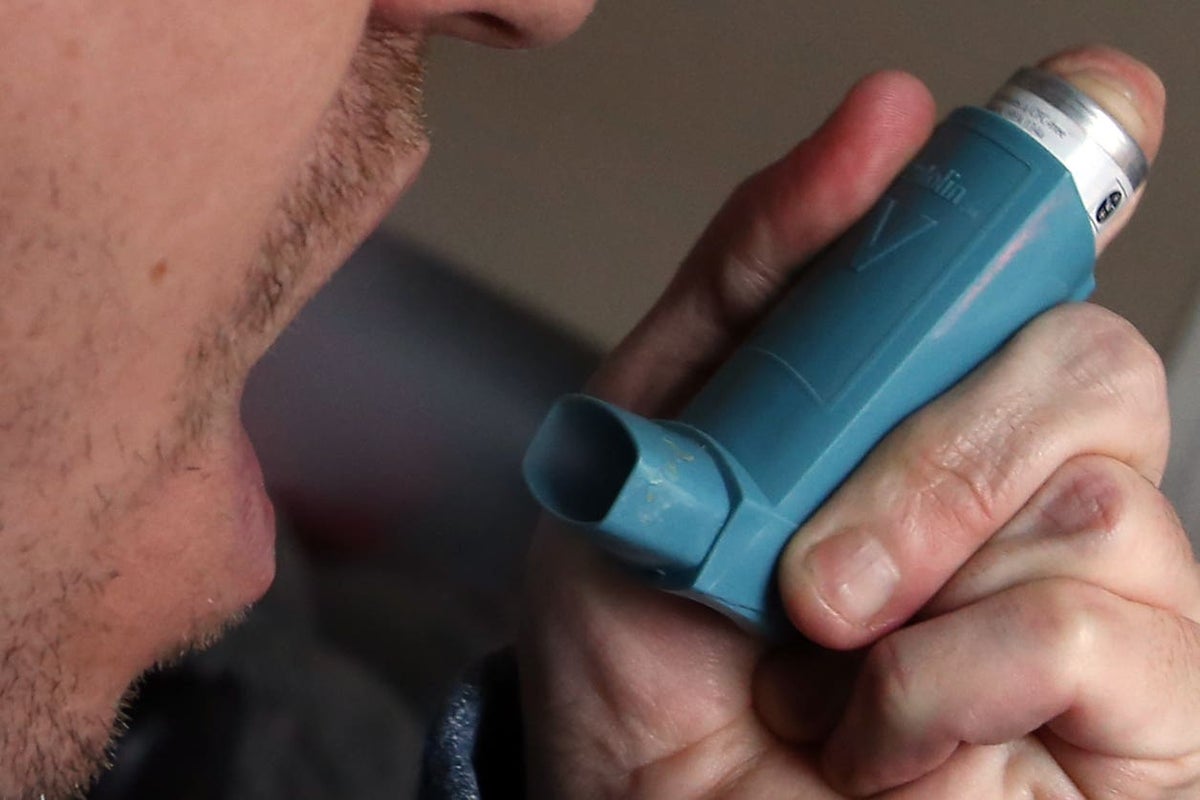
Getting enough sleep could help stave off asthma, new research suggests.
Experts found that healthy sleep patterns were linked to a reduced risk of asthma, while poor sleep raised the risk – by more than double in those who were also genetically likely to develop the condition.
A team from Shandong University in China used data from the UK Biobank study to examine 455,405 people aged 38 to 73.
They developed a model of risk and sleep traits and followed participants for 10 years.
At the start of the study, people were asked about their sleeping patterns, including whether they were a morning person or a night owl, how long they slept for, whether they snored, had insomnia and whether they suffered excessive sleepiness during the daytime.
Based on their responses, 73,223 people met the criteria for a healthy sleep pattern, 284,267 an intermediate sleep pattern, and 97,915 a poor sleep pattern.
A healthy sleep pattern was defined as being more of a morning person, sleeping for seven to nine hours a night, never having insomnia or suffering rarely, no snoring and no frequent sleepiness during the day.
The genetic make-up of all those in the study has been mapped, and a genetic asthma risk score was drawn up for the people.
Around one in three were found to have a high genetic risk, another third an intermediate risk and another third a low risk.
Over the decade of follow-up, 17,836 people were diagnosed with asthma, according to the study published in journal BMJ Open Respiratory Research.
They were more likely to have several traits, including poorer sleep patterns, obesity, higher genetic risk of asthma, higher levels of smoking and drinking, high blood pressure, diabetes, depression and greater exposure to air pollution.
Compared with those at low genetic risk, those with the highest genetic risk were 47% more likely to be diagnosed with asthma, while those with a poor sleep pattern were 55% more likely.
However, people at high genetic risk who also reported poor sleep patterns were more than twice as likely to be diagnosed with asthma as those with both a healthy sleep pattern and a low genetic risk.
Meanwhile, a healthy sleep pattern decreased the risk of asthma by 44% in those at low genetic risk, by 41% in those at intermediate risk and by 37% in those with high genetic risk.
“These results showed that a healthy sleep pattern could significantly decrease asthma risk in any genetic subgroup,” the researchers said.
A healthier sleep pattern could be beneficial in asthma prevention regardless of genetic conditions— Researchers
At the population level, a low genetic risk combined with a healthy sleep may indicate that around a fifth of asthma cases could be prevented.
The team concluded: “Unhealthy sleep patterns and sleep traits… were significantly associated with the risk of asthma in adults.
“The combination of poor sleep pattern and high susceptibility could lead to additive asthma risk.
“A healthier sleep pattern could be beneficial in asthma prevention regardless of genetic conditions.”
The researchers said the study “highlights the importance of early detection and management of sleep disorders, which could be beneficial in reducing asthma incidence”.
We still don't know enough about why only some people develop asthma, and other lung conditions, while others don't— Dr Erika Kennington, of Asthma and Lung UK
The authors suggested some reasons for the findings, including that poor sleep can cause an inflammatory response in the body which increases the risk of asthma.
Dr Erika Kennington, head of research and innovation at Asthma and Lung UK, said: “This research suggests there’s a link between asthma and not getting enough sleep, although it’s too early to say that treating poor sleep could reduce someone’s risk of developing asthma.
“We still don’t know enough about why only some people develop asthma, and other lung conditions, while others don’t.
“To understand why lung conditions develop in the first place we need to see more investment into respiratory research.
“Lung conditions are the third biggest killer in the UK, yet only 2% of public funding is spent on research that will help diagnose, treat and manage them much more effectively.
“We’re fighting for increased funding for research and innovation that could transform and save the lives of millions in the UK and across the world.”







